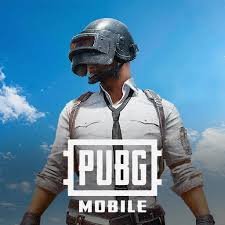
PlayerUnknown’s Battlegrounds (PUBG) has carved its name into the heart of the gaming community as one of the most influential titles in the battle royale genre. Released in 2017 by PUBG Corporation, a subsidiary of South Korean company Bluehole, PUBG took the gaming world by storm with its realistic mechanics, intense gameplay, and last-man-standing format. Unlike traditional shooters, PUBG dropped players onto a vast island with nothing but their instincts and scavenged gear. The innovative format, which required 100 players to fight for survival until only one remained, was an immediate success, laying the foundation for a new sub-genre that would inspire countless competitors. PUBG’s realistic weapons, varied maps, and focus on strategy and survival separated it from arcade-style shooters, attracting a dedicated and competitive player base.
PUBG’s impact went far beyond just sales numbers; it fundamentally shifted how multiplayer games were designed and experienced. Before PUBG, multiplayer shooters typically revolved around team-based objectives or kill counts. PUBG introduced the idea of large-scale, survival-based gameplay where positioning, timing, and map awareness were just as important as shooting accuracy. The success of PUBG led to the rapid rise of the battle royale format, inspiring other major titles like Fortnite, Call of Duty: Warzone, and Apex Legends. Each of these games took cues from PUBG but added their own flavor, often leaning toward faster-paced, more casual gameplay. However, PUBG maintained its identity by sticking to its realistic and tactical approach, attracting players who preferred a more grounded and strategic experience.
One of PUBG’s standout features is its map variety, which contributes heavily to replayability. The original map, Erangel, features a mix of urban environments, forests, and open fields, providing balanced terrain for combat and movement. Later maps like Miramar (desert), Sanhok (jungle), and Vikendi (snow) added distinct environmental challenges and required players to adapt their strategies. Each map introduced different dynamics, whether it was Sanhok’s fast-paced skirmishes or Miramar’s long-range sniper duels. PUBG’s commitment to updating and expanding its maps has kept the game fresh and allowed for constant evolution in gameplay strategies. Moreover, vehicles, environmental hazards, and randomly generated loot make each match unpredictable, ensuring that no two games are ever the same.
PUBG also made a significant mark on the competitive gaming scene. Esports organizations quickly recognized the game’s potential, and official PUBG tournaments soon followed, offering large prize pools and global participation. Events such as the PUBG Global Championship brought together the best players and teams from around the world to compete on a grand stage. The competitive format emphasized not just killing but also placement, survival, and coordination, showcasing the game’s depth. Spectator-friendly features like live map tracking and player stats helped viewers follow the action, even in massive 100-player lobbies. PUBG esports helped cement the game’s legacy as not just a casual experience but a serious competitive platform with high stakes and high skill ceilings.
The game’s mobile version, PUBG Mobile, launched in 2018, was a game-changer for accessibility and global reach. Developed by Tencent Games, PUBG Mobile made the high-quality battle royale experience available to millions of players without the need for a powerful PC or console. The mobile version retained much of what made the original game great, including large maps, realistic shooting mechanics, and a variety of weapons and vehicles. PUBG Mobile introduced millions of new gamers in regions like India, Southeast Asia, and the Middle East to online multiplayer competition. It also became a cultural phenomenon in several countries, leading to celebrity endorsements, brand collaborations, and even national debates over gaming addiction. Despite controversies, the success of PUBG Mobile underscored the growing influence of mobile gaming in the industry.
In conclusion, PUBG’s journey from a mod in Arma 2 to a global gaming phenomenon is a testament to the power of innovation and community engagement. It introduced a new way to experience competitive shooters and paved the way for one of the most popular genres in modern gaming. With a loyal fanbase, evolving content, and continued relevance in both PC and mobile platforms, PUBG has proven its staying power. It not only changed how games are played but also how they are viewed, streamed, and celebrated. As the gaming world continues to evolve, PUBG remains a towering figure in its history—one that set the standard for survival-based multiplayer gameplay and left an indelible mark on the industry.
Leave a Reply